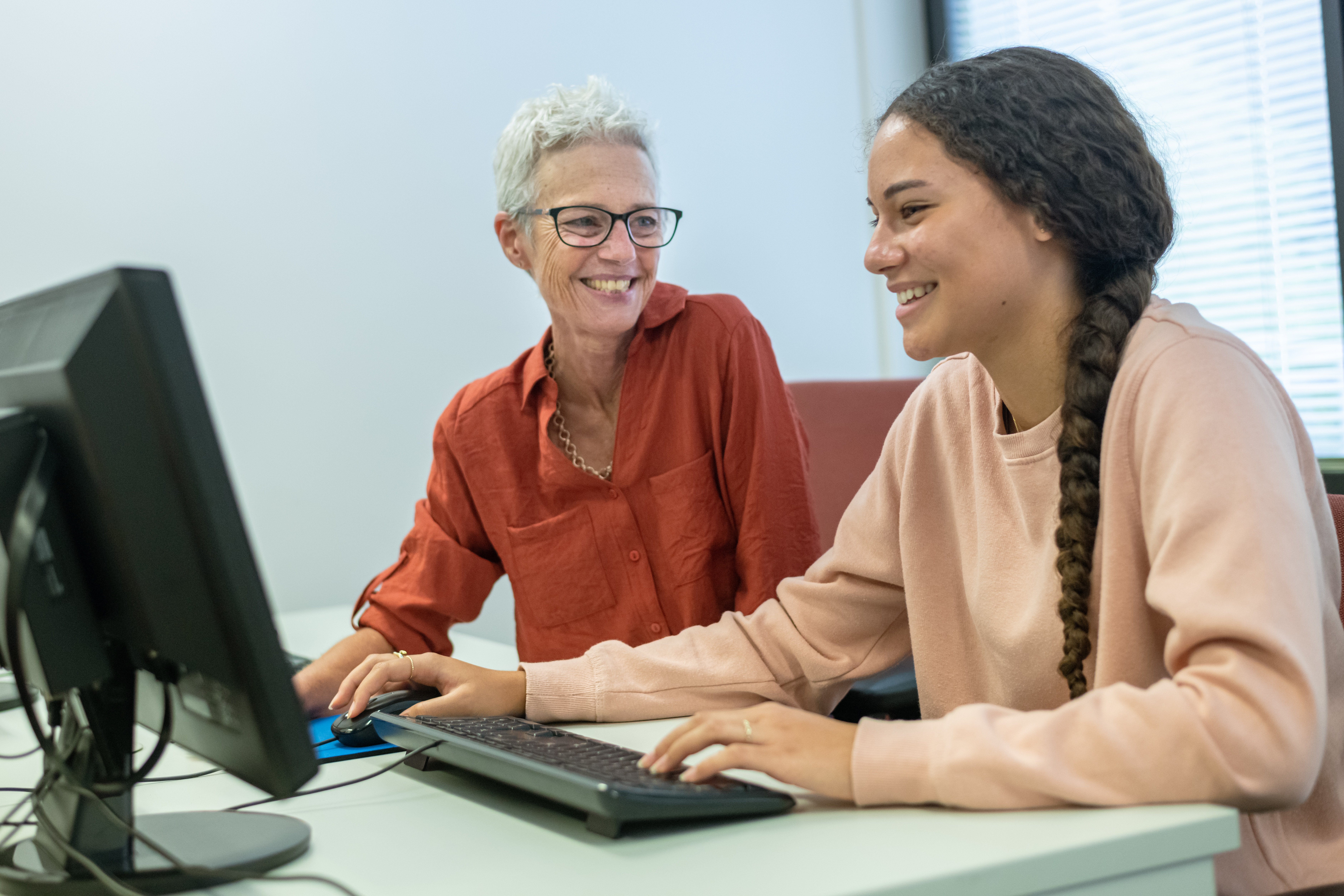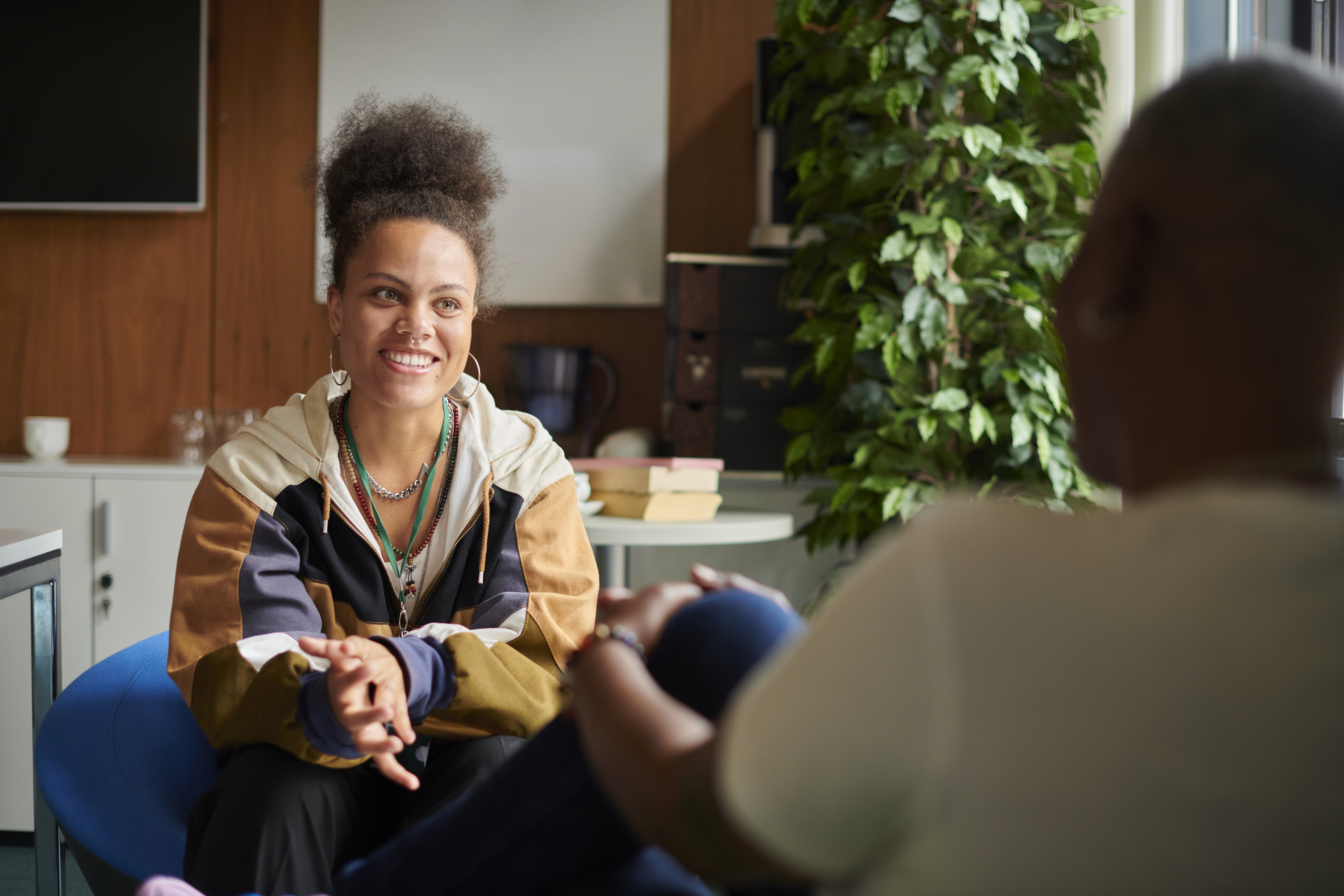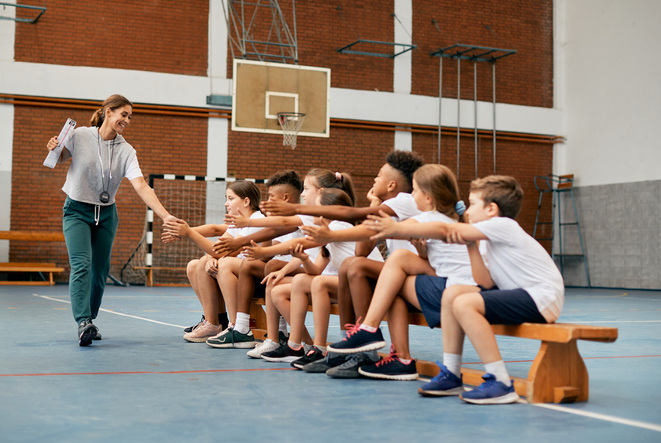Blog
Programs Need Safe Faces to Create Safe Spaces
Having access to strong relationships is an important part of positive youth development. More specifically, when youth experience healthy developmental relationships with adults, they are better positioned to thrive.
Ensuring youth feel seen and heard is an essential part of developmental relationships, but can only be achieved once youth feel safe enough to share their authentic selves. Adults working with youth through programs and other out-of-school time activities play an essential role in creating spaces that are physically and psychologically safe. More specifically, youth-serving professionals can promote youth thriving and relationship-rich programs by creating safe spaces and being safe faces. The strategies shared here reflect insights from our youth-serving professional partners, parents, and young people at partner organizations for the Rooted in Relationships project.
Safe Space
A Safe Space includes the climate, culture, and atmosphere within a youth development organization. Safe spaces can be co-created by both the youth and adults in an organization. When a safe space is created, youth can feel safe and supported both mentally and emotionally (i.e., psychological safety). Additionally, youth feel they can express themselves, share their thoughts, and be vulnerable without fear of rejection.
A youth-serving professional who is a part of the Rooted in Relationships project, shared how they work to create a safe program space for the young people they serve.
“Watching a student go from being shy, and not talking to people to being very vocal, and being a leader, and bringing in other shy people. I don't want to say I did that, but I think the space that I created helped with that. Because I never made her feel bad for her shyness. I never made her feel excluded. I remember as a kid, because of who I am, I'm very rambunctious, but my shy friends they got forgotten about by the teachers. And I made it my duty to talk to each student, and even if I'm prying teeth to get you to talk to me, we're gonna have a conversation. I want to get to know you. And, I think by [me] modeling that, she was able to model it to other students and bring them in and say, “Hey, it's your good here. It's okay. You have to want to be quiet. You have all the space to do that. But do know that you have adults here that want to talk to you.” And in turn, that student has been coming back for years to come. And, she's been asking me to help her with resumes and internships, and she's a junior right now, but taking college courses, and it's just so amazing to see from her freshman year to now. And all the things she's been doing, so I want to say that. I feel like personally, I just created a space for her to flourish.”
More specifically, the following represent conditions that organizations can foster to help create safe spaces:
-
Promote Open and Respectful Communication: The space provides a safe environment for youth to express themselves without worrying about being judged or rejected by the group. The space also has shared community standards for open and respectful communication that allow youth to show up as their full selves.
-
Welcome Youth of All Cultural Backgrounds: The space embraces the various cultural and ethnic backgrounds of youth. By creating a culturally responsive environment where youth can share cultural practices and interests that make them who they are, youth can feel valued, acknowledged, and seen. Finally, this type of space can provide youth with the opportunity to reflect on themselves and learn to respect others who are different from them.
-
Encourage Youth Voice: The space prioritizes youth having a platform to convey their needs, thoughts, and interests. It’s important for youth development programming to value youth voice, and allow young people to take the lead. Together adults and youth can work to enhance, adjust, and co-design programming based on youths’ needs and interests.
Safe Face
A Safe Face refers to the adults that youth engage with in their youth development programs. Adults can help youth thrive by taking a developmental relationships approach, and engaging in other supportive actions that create a welcoming and safe environment.
A parent at a partner organization in the Rooted in Relationships project, shared how program staff are safe faces for their children.
“Because this [program] is their safe place. These are people they can trust. These are people that are there for them whenever they need anything. Something as simple as I need help with my homework. Which they do almost on a daily to, "I don't know where my parents are, can we call them?" So they knew this is a safe place. This is where I know, this is where I trust these grownups. Let me go there, because they're going to help me. I think if you show your kids that hey, I can trust these people, then you can trust them too. And they'll want to come, because they're going to feel safe here.”
Having safe faces in organizations is essential. The following actions have the potential to help youth view adults as safe faces:
-
Provide Emotional Support: Adults can be safe faces by listening and making an effort to understand the emotions of youth. When youth are in environments where adults exhibit empathy, they may become more compassionate and willing to support others. Additionally, adults should consistently and regularly check in with youth to convey a commitment to their well-being.
-
Be Trustworthy: Adults can be safe faces by being open and vulnerable with youth, and staying true to their words through their actions. When adults are able to connect with youth on a personal level, they may feel more comfortable opening up during programming. Trust takes time to build, but through consistent and reliable support, youth can feel secure knowing that someone will be there for them.
-
Be Curious: Adults can be safe faces by showing interest in a youth’s life, interests, identities, and experiences. Being curious helps youth feel at ease and willing to share, and it allows adults to form a stronger connection with them. Paying attention to the needs of youth and remembering details further strengthens the relationship. Adults who are consistently curious about the youth they serve can be better positioned to support youth as they navigate the ups and downs of development.
It is crucial for all organizations serving youth to create safe spaces and have safe faces. When organizations prioritize youth safety, it can contribute significantly to the development of positive relationships between youth and adults. Safety is a fundamental human need that must be met for meaningful relationships to flourish. By placing safety at the forefront of our programs and outside-of-school activities, youth development professionals can nurture positive relationships and support the growth of our youth.
Cia Elder is currently a PhD student at the University of North Carolina at Greensboro in the Human Development and Family Studies department. She also works in Guilford County Schools as a graduate assistant and tutor for middle schoolers. Additionally, Cia has worked at Pretty Lake Camp as a cabin director for 7 years, as a site supervisor at the YMCA, and worked closely with teens in the Boys and Girls Club. Cia is one of Search Institute's 2024 Summer Scholar Fellows.




